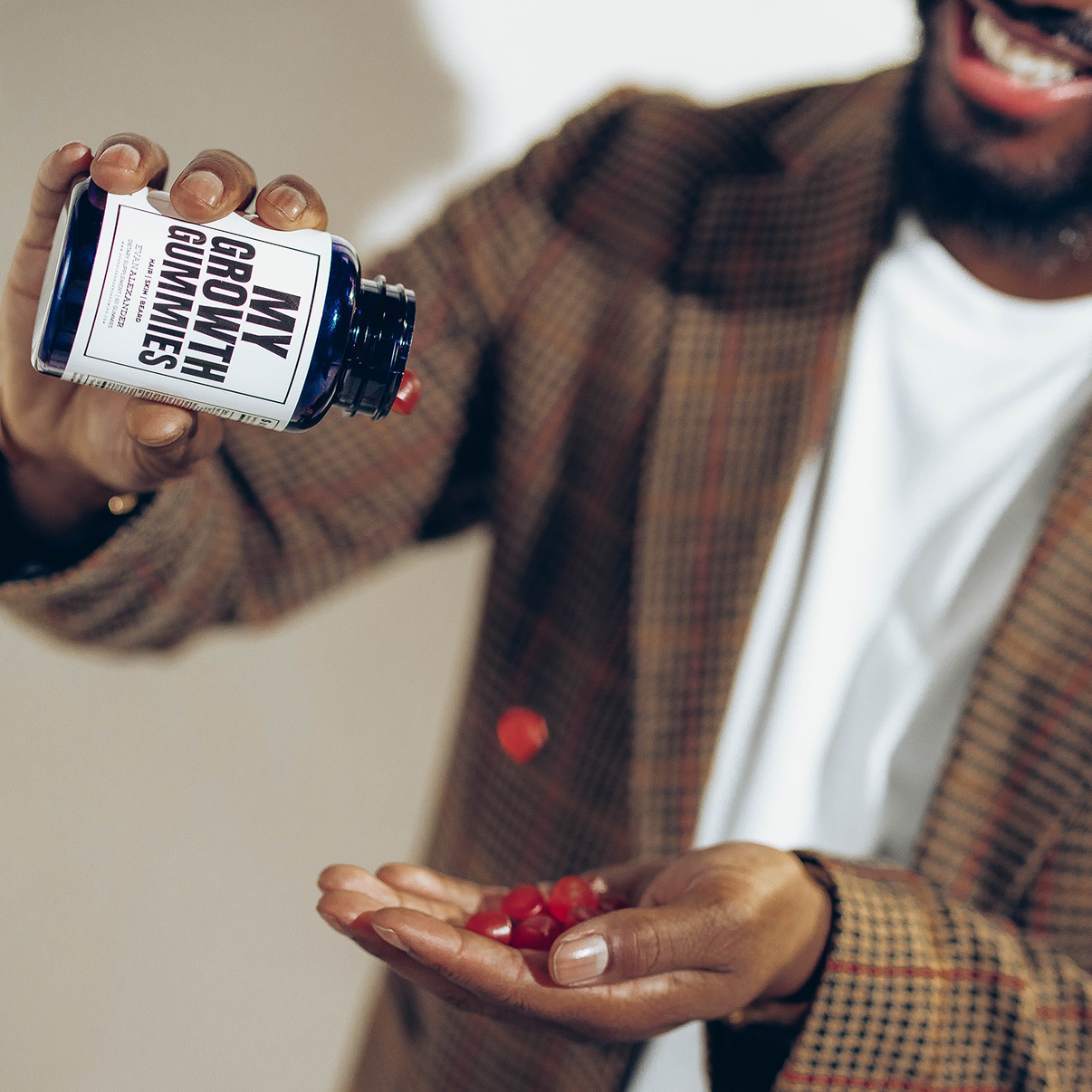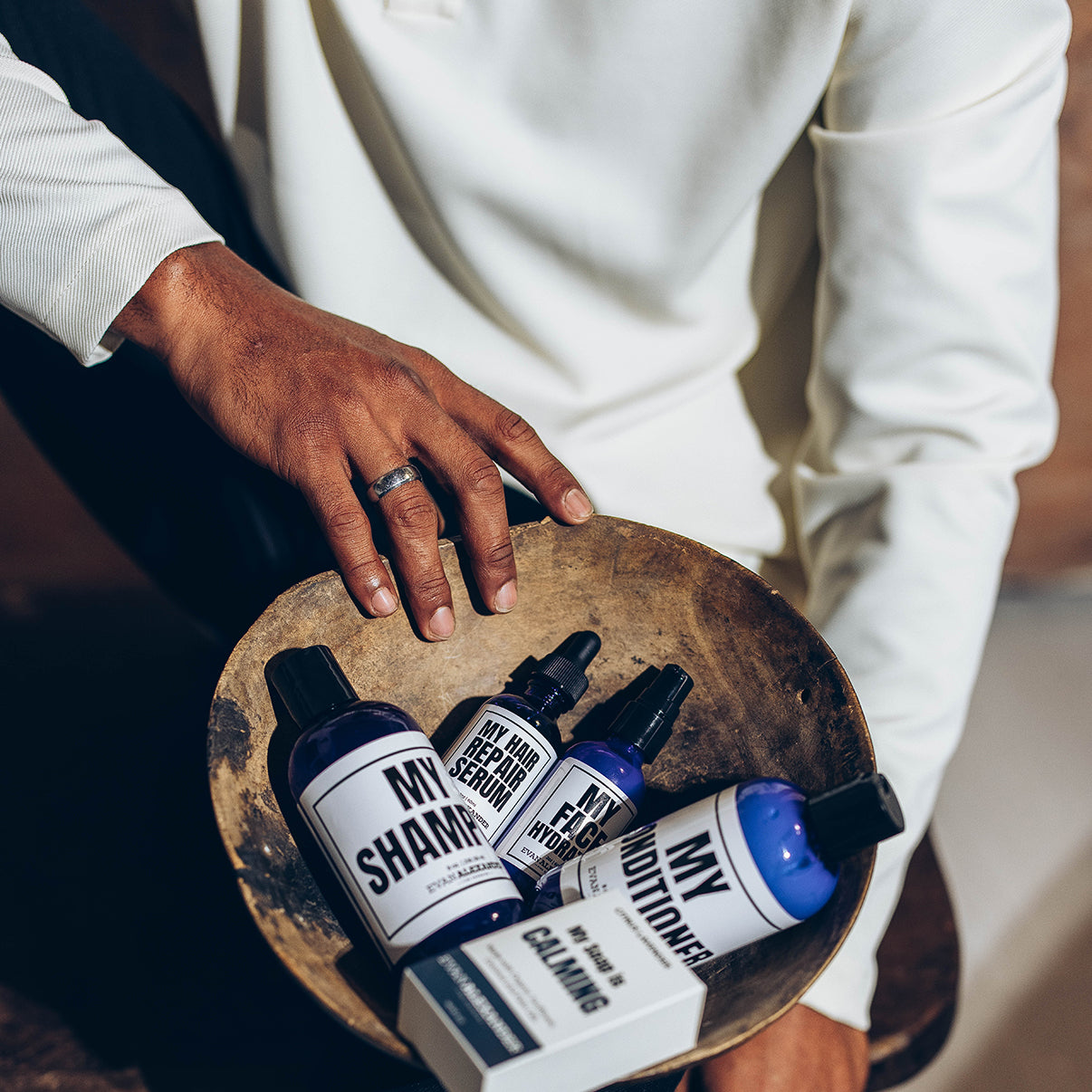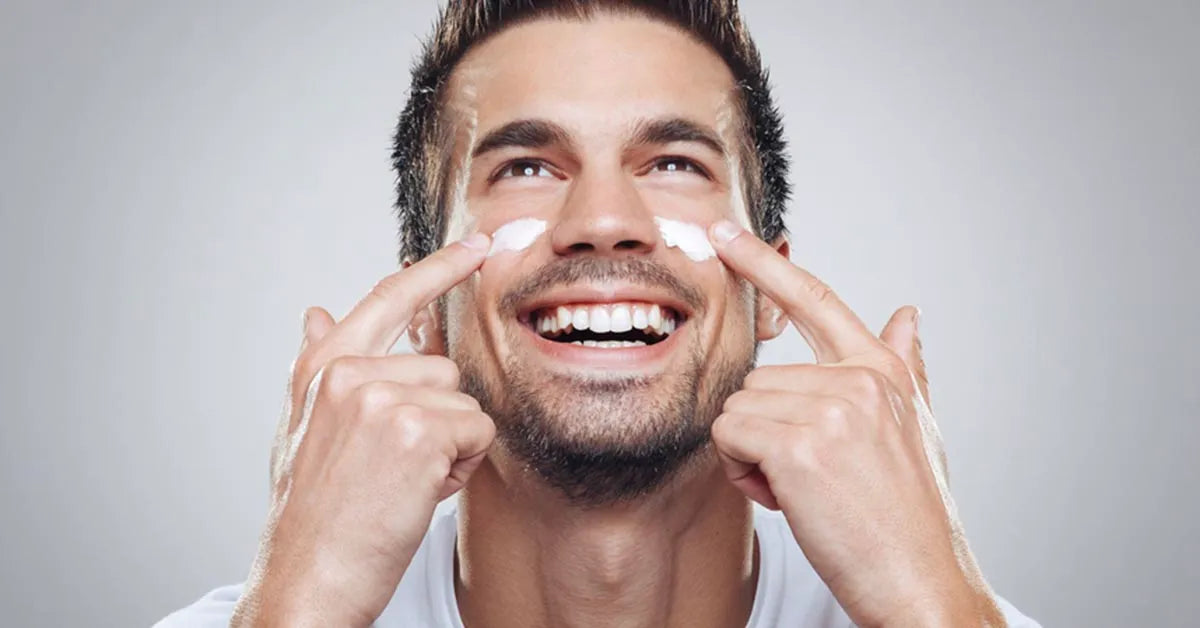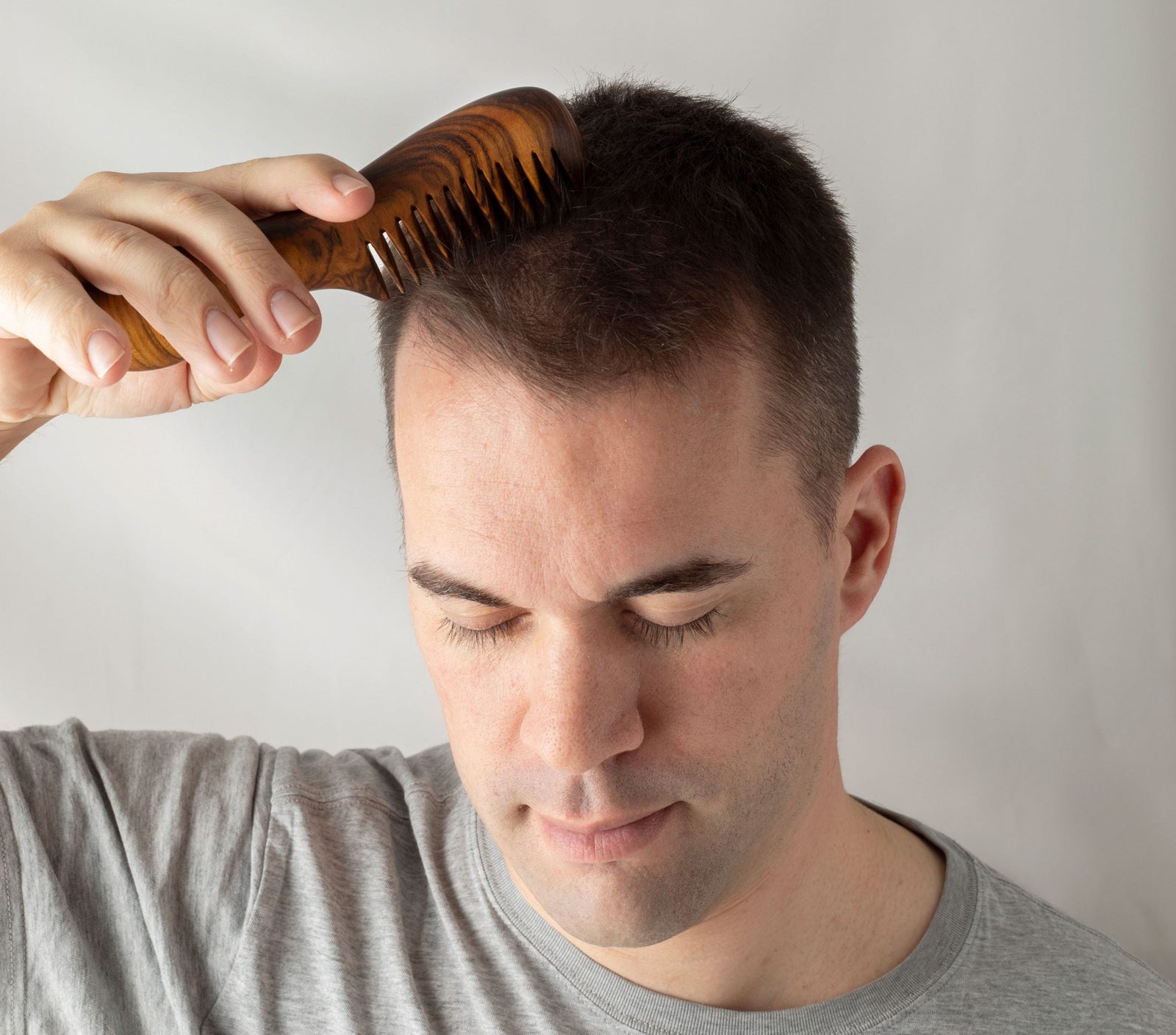5 Anti-Stress Vitamins (Nutrients) That Work
When I think of stress, I like to imagine there are two buckets. In one bucket, we have normal stress. This is just the body's natural response to demand. When put under just the right amount of pressure, this can be good for us. For instance, we can utilize stress to hit our goals and move forward with ambition. In other words, normal stress takes us to the next level.
In the other bucket, however, we have chronic stress. This is when stress becomes the body's default setting. Unlike normal stress, prolonged stress can have serious repercussions on a person's well-being — mentally, emotionally, and physically. Fortunately, there are anti stress vitamins, including essential vitamins for men, that can help mitigate these effects.
For many of us, this past year has been the most stressful period in our entire lives. As a presence in the men's grooming sphere, Evan Alexander has remained privy to our community's concerns surrounding hair loss and stress hair loss.
A holistic approach to stress-induced hair loss
Let me remind you one thing: You deserve to not only look great but to radiate that greatness from the inside out. This is why nutrition, including anti stress vitamins and top vitamins for men,is the superior solution in many cases. When you elevate your inner health, appearance naturally follows. After all, who wants to look good but feel terrible?
To get you back to looking and feeling unstoppable, I'm going to break down 5 nutrients you need to carry your body through stressful times.
Ashwagandha
Ashwagandha, also known as Indian ginseng, has been a staple in Ayurvedic medicine for hundreds of years. It's a member of a group of herbs called stress adaptogens. And just as it sounds, these herbs help our bodies adapt to stress. Ashwagandha, specifically, isone of the most effective anti stress vitamins for reducing stress and anxiety. When left unchecked, that same stress and anxiety can cause cortisol levels to spike. Chronic high levels of cortisol can lead to hair thinning, which is why vitamins good for hair loss are essential. This is my go-to on the daily to combat that.
Vitamin D
We all know vitamin D as the "sunshine vitamin" and an essential for bone health. This past year, it's gained tons of attention as an immunity booster as well.
But did you know it also plays a role in mood regulation? Since mood is an area where we feel the impacts of stress so palpably, it makes sense to reach for nutrients that help to balance our nervous systems. Research also suggests that chronic stress may block our absorption of vitamin D. More simply put, stress reduces our stores of vitamin D while increasing our need for it.
On top of that, melanindecreases the skin's ability to naturally produce vitamin D. All the more reason to equip ourselves through diet and/or supplementation.
Curcumin
Curcumin is the compound found inturmeric that gives it its anti-inflammatory power. Like chronic stress, chronic inflammation has been linked to a whole array of health problems. And no surprise here — chronic stress can actually heighten the body's inflammatory response.
In terms of scalp health, we don't want inflammation around our hair follicles because inflamed tissue can cut off oxygen and nutrients. If you're experiencing stress-induced hair loss, you may want to look into anti-inflammatory nutrients like curcumin.
Magnesium
Magnesium is the nutrient that's responsible for the functioning of over 600 enzymes in the body. In the context of stress, it regulates the body's stress response system. So, to keep your nervous system in check, be sure you're getting enough magnesium on a daily basis. Including a multi vitamin for men in your routine can help ensure you meet this requirement.
Protein
We typically think of protein in the context of building muscle. Many of us haven't been taught that our bodies actually require more protein when we're under stress!
Did you know that over 90% of our hair is made up of the protein, keratin? Therefore, be cognizant of your protein intake whenever stress has your hair falling out. Our goal is to help support healthy hair growth from the inside out and repair weakened strands. Consider incorporating hair skin nails vitamins as they can provide the necessary nutrients for overall hair health.
Wellness is the foundation for excellence
Adequate nutrition is priceless. While we can't remove some of life's stressors, we canchoose to be greater than them. Nutrition is just one of the vehicles in which we can do that.
Have you tried any of the nutrients mentioned here? What worked for you and what didn't? What other stress-managing methods can you share with us, nutritional or otherwise?
We are so grateful for how this community has shown up — andcontinues to show up — for each other in recent times! So please don't forget to share in the comments below. We would love to hear from you.










Leave a comment (all fields required)